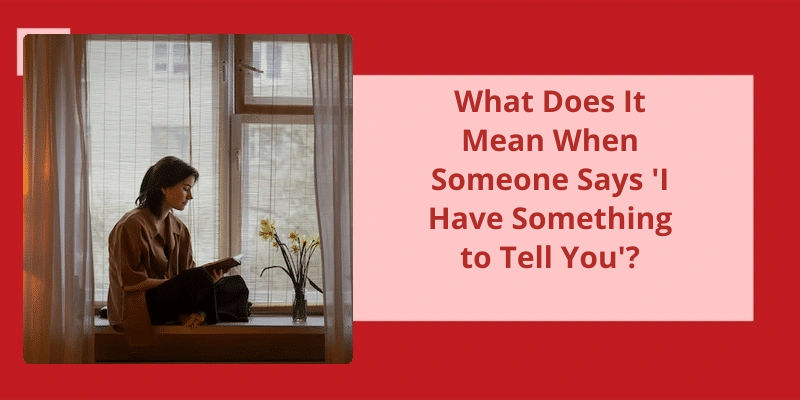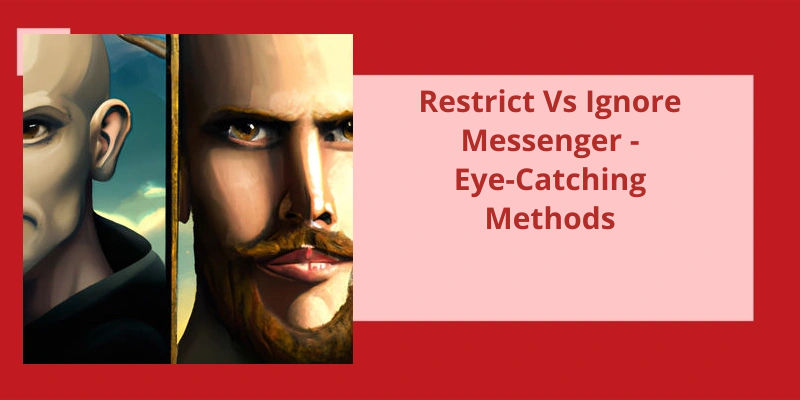It's a statement that holds a certain weight, a gravity that commands attention and curiosity. When someone utters those words, it's hard not to feel a sense of anticipation, a certain nervousness as you wait to hear what they’ve to say. It could be news that will change your life, a confession that will alter your perspective, or simply a story that will make you laugh or cry. Whatever it is, the phrase "I’ve something to tell you" carries with it a sense of significance and importance that can’t be ignored. It prompts us to listen actively and with an open mind, to be ready for whatever revelations or surprises may come our way. So, when someone says those words to you, it's important to be prepared to receive them, because what follows could be life-changing.
Why Do People Say I’ll Tell You Later?
Whatever the reason, this common phrase can be both frustrating and intriguing for the listener. For some people, the act of telling a story or sharing information is just as important as the actual content itself. By saying “Ill tell you later,” they may be able to stretch out the anticipation, build up the excitement, or simply enjoy the attention that comes with holding onto information.
On the other hand, there may also be times when someone genuinely doesn’t have the time, energy, or emotional capacity to share something right away. It could be a private matter that theyre not comfortable discussing in a particular setting, or they might want to wait until they’ve a better understanding of the situation before opening up. For these individuals, saying “Ill tell you later” is a way to acknowledge the other persons interest while also giving themselves time and space to prepare.
It’s also worth noting that some people simply enjoy being in control of the conversation. By withholding information or delaying gratification, they may be able to assert their dominance or feel like they’ve leverage over the other person. This can be a manipulative behavior, but it’s important to remember that not everyone who says “Ill tell you later” is doing so with malicious intent.
Ultimately, the reasons why people use this phrase can be as varied as the people themselves. It could be a personality quirk, a coping mechanism, a strategic move, or something else entirely. As frustrating as it can be to hear those five little words, it’s important to remember that everyone has their own way of communicating and processing information. By approaching the situation with patience and understanding, we can avoid unnecessary conflict and communicate more effectively.
The expression “I’ve to say” is commonly used to preface a statement or observation that the speaker believes is important or necessary to communicate. It can convey a sense of urgency or emphasis, and often signals that the speaker is about to express their opinion or share something that they feel strongly about. In the context of a conversation, using this phrase can help to keep the dialogue flowing smoothly and ensure that both parties are on the same page.
What Is the Meaning of I Have to Say?
The idiom I’ve to say is commonly used to convey the speakers opinion on a particular matter. It’s usually used to preface a statement or an observation that the speaker believes to be important. This phrase can be used in both formal and informal situations to indicate that the speaker has something to say that must be heard.
In the example, “I’ve to say, when you said your cousin had had an accident, I wasnt expecting you to come to work,” the speaker is expressing surprise and concern for the listeners cousin. They’re indicating that they didn’t expect the listener to come to work, given the traumatic nature of the news. The phrase I’ve to say in this instance conveys a sense of urgency and emphasizes the speakers concern for the listener.
Using the phrase I’ve to say can also imply that the speaker has been thinking about the issue for some time and has come up with a conclusion or an opinion. It can also denote that the speaker is about to provide a piece of information that others may be unaware of or haven’t considered.
In some situations, I’ve to say can be used to introduce a compliment or praise for someone. It can be used to prepare the listener for a positive statement, such as “I’ve to say, you did an excellent job on that project.”. In this case, the phrase is used to emphasize the speakers admiration for the listeners work.
Overall, I’ve to say is a versatile phrase that can be used to introduce a variety of different statements. It’s typically used to indicate that the speaker has something important to share and that what they’re about to say should be taken seriously. It can be used in both formal and informal settings and can express a range of emotions, including concern, surprise, admiration, and more.
Tips for Using “I Have to Say” Effectively in Business or Social Settings
- Only use “I’ve to say” when necessary – don’t overuse it.
- Use it to introduce a potentially controversial or sensitive topic.
- Avoid using it defensively or aggressively. Instead, use it to express a personal opinion or perspective.
- Always be prepared to follow up with reasoning or evidence to support your statement.
- Pay attention to your tone of voice and body language to ensure your message is received clearly.
- Consider other phrases that can achieve the same effect, such as “In my opinion” or “From my experience”.
Conclusion
It could mean that the speaker has uncovered something significant that they believe you need to be aware of, or it could indicate that they need to share their own personal truth with you. Regardless of the context, this statement often carries emotional weight and can evoke a sense of anticipation or trepidation in the listener. Ultimately, when someone says "I’ve something to tell you," it's essential to listen carefully and approach the conversation with an open mind and heart, as it may have profound implications for your relationship or life.






